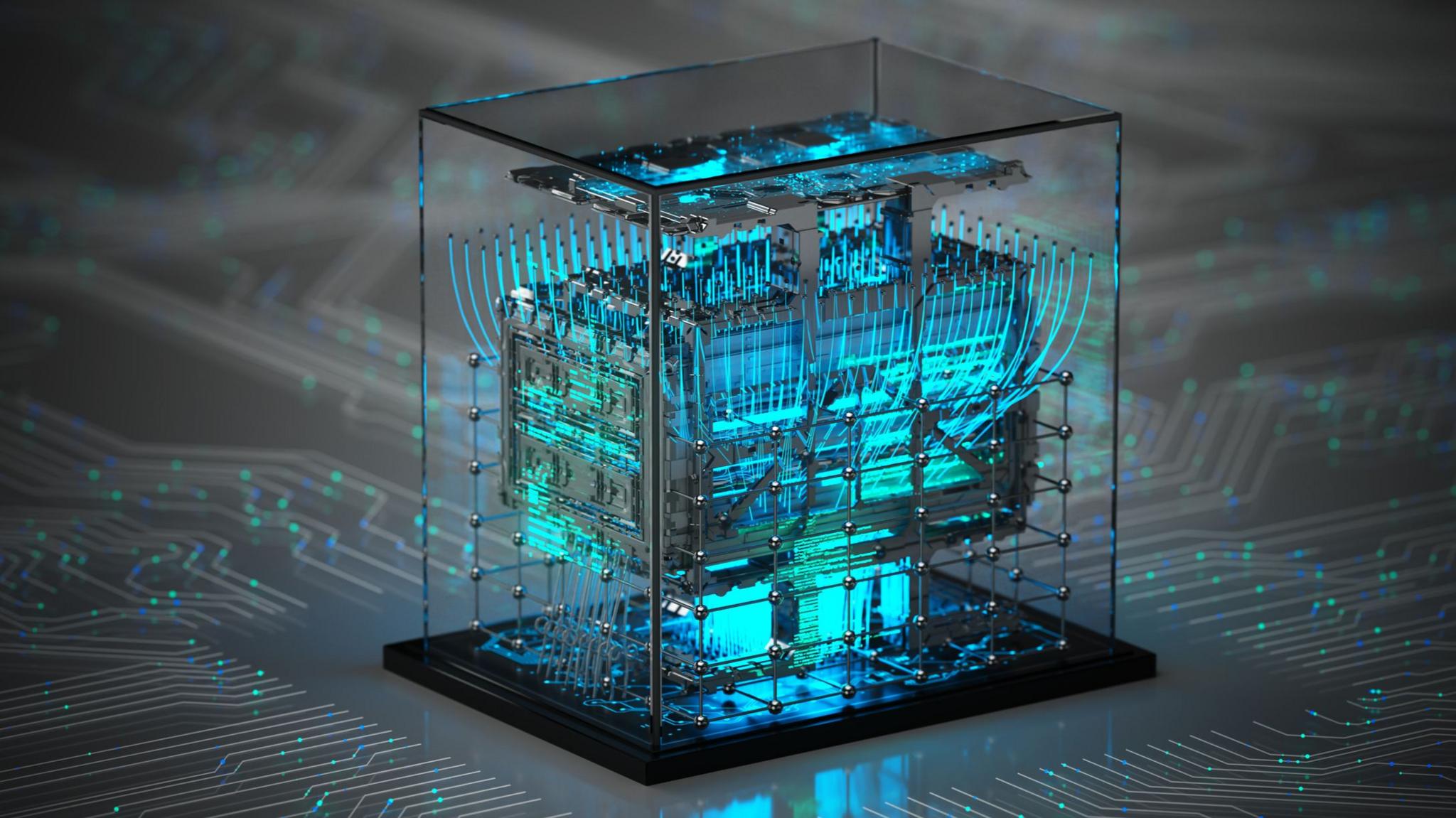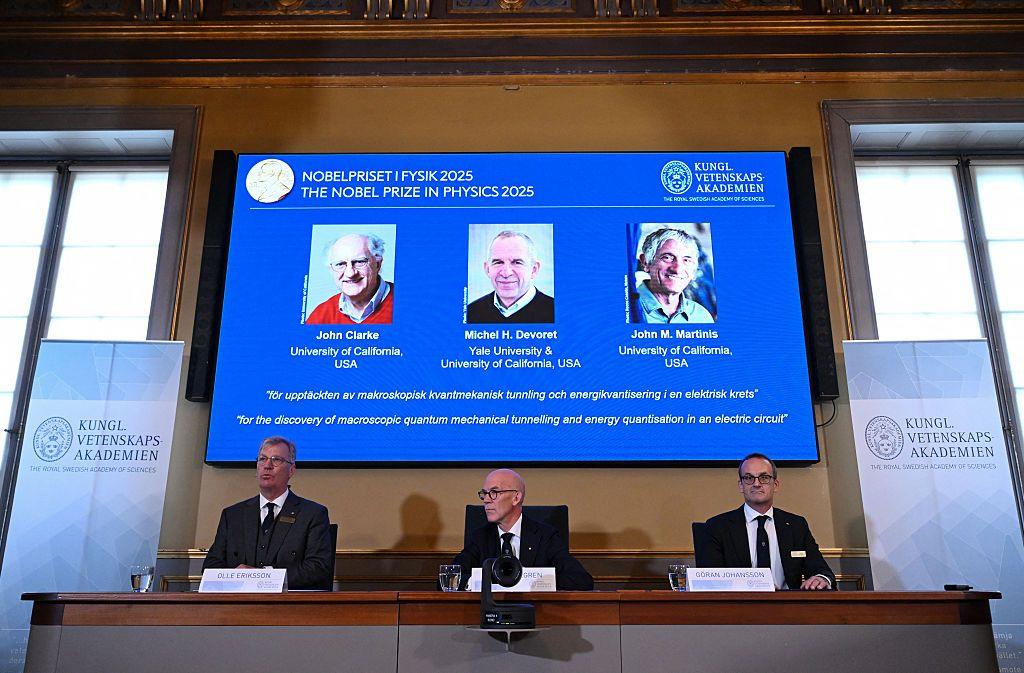Physics Nobel awarded to three scientists for work on quantum computing

- Published
The Nobel Prize in Physics has been awarded to John Clarke, Michel H. Devoret and John M. Martinis for their work on quantum mechanics that is paving the way for a new generation of very powerful computers.
"There is no advanced technology used today that does not rely on quantum mechanics, including mobile phones, cameras... and fibre optic cables," said the Nobel committee.
The announcement was made by the Royal Swedish Academy of Sciences at a news conference in Stockholm, Sweden.
"To put it mildly, it was a surprise of my life," said Professor John Clarke, who was born in Cambridge, UK and now works at the University of California in Berkeley.
Michel H. Devoret was born in Paris, France and is a professor at Yale University while John M. Martinis is a professor at University of California, Santa Barbara.
The three winners will share prize money of 11 million Swedish kronor (£872,000).
The Nobel committee recognised breakthrough work performed by the three men in a series of experiments in the 1980s on electrical circuits.
In the words of the committee, "the discovery of macroscopic quantum mechanical tunnelling and energy quantisation in an electric circuit".
Even for a field often considered dense, this discovery sounds bewildering.

But its implications have been profound and far-reaching. The electronic devices that most of us use rely on it, and the findings are being used to build extremely powerful computers.
"This is something that leads to development of the quantum computer. Many people are working on quantum computing, our discovery is in many ways the basis of this," said Prof Clarke on the phone to the news conference moments after he was told he had won.
He appeared mystified that his work completed forty years ago is worthy of science's most prestigious prize.
"I'm completely stunned. At the time we did not realise in any way that this might be the basis for a Nobel prize," he said.
Quantum mechanics relates to the behaviour of tiny things in a tiny world. It refers to what particles like the electron do in the sub-atomic world.
Professor Clarke and his team looked at how these particles appeared to break rules like travelling through energy barriers that conventional physics said was impossible - something called "tunnelling".
Using quantum "tunnelling", the electron manages to burrow through the energy barrier.
Their work demonstrated that tunnelling can be reproduced not only in the quantum world, but also in electrical circuits in the 'real world'.
This knowledge has been harnessed by scientists in making modern quantum chips.
"This is wonderful news indeed, and very well deserved," said Professor Lesley Cohen, Associate Provost in the Department of Physics at Imperial College London.
"Their work has laid the foundations for superconducting Qubits - one of the main hardware technologies for quantum technologies."
Previous winners of the Nobel Prize in Physics
2024 - Geoffrey Hinton and John Hopfield for their work on AI and machine learning;
2023 - Pierre Agostini, Ferenc Krausz and Anne L'Huillier for work on attoseconds - extremely short pulses of light that can be used to capture and study rapid processes inside atoms;
2022 - Alain Aspect, American John Clauser and Austrian Anton Zeilinger for research into quantum mechanics - the science that describes nature at the smallest scales;
2021 - Syukuro Manabe, Klaus Hasselmann and Giorgio Parisi were given the prize for advancing our understanding of complex systems, such as Earth's climate;
2020 - Sir Roger Penrose, Reinhard Genzel and Andrea Ghez received the prize for their work on the nature of black holes;
2019 - James Peebles, Michel Mayor and Didier Queloz shared the prize for ground-breaking discoveries about the Universe;